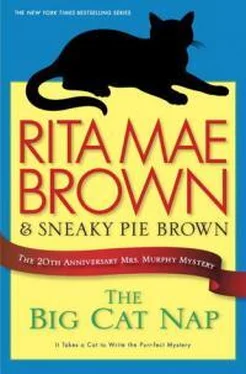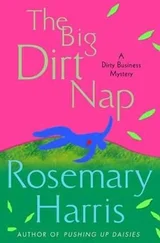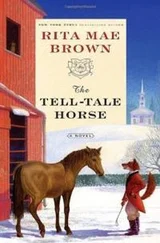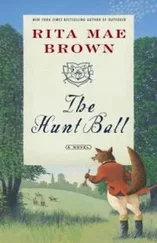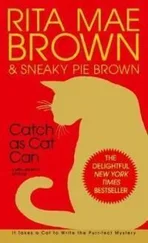Yancy interrupted. “Better than nothing, I suppose, but I’d hate to depend on it.”
“Me, too. The payment is always inadequate to the damage, and there’s plenty of people who will tell you the same thing about auto insurance. We undervalue their cars, undervalue repairs, use less-skilled labor. The funny thing is, NHTSA—the National Highway Traffic Safety Administration—hasn’t had an update on wheels since 1974. Back then wheels were steel. So we’ve got some seriously outmoded standards.”
“Well, that just might make it easier for you to be dishonest,” Yancy impolitely answered.
Stiffening slightly, Latigo said, “I’ll assume the ‘you’ applies to the industry and not me personally. Actually, what creates problems is people expecting the government to take care of them. Well, if wheel standards are damned near forty years old, isn’t it clear either they don’t care, or they don’t know enough to care, or they’re too venal to care? I know that safety standards are vastly different for a steel wheel than for one made primarily of aluminum. When my field agents assess damage and repair costs, I can tell you they’re far more accurate than any federal goon ever is.”
“Didn’t know about that,” Yancy simply replied.
“People have no idea, no idea at all.” Latigo laughed derisively.
“The technology changes so rapidly. How can you keep up with it? I know the government can’t.” Fair was curious.
“Fair, let me tell you something.” Latigo, one inch shorter than Fair’s six foot five, looked level at him. “What’s changed is computers running cars. Engines haven’t changed. Alternators haven’t changed. Fan belts haven’t changed. The internal-combustion engine is about perfect. Materials change. Oh, maybe the angle of setting an engine under the hood will change, but a piston is a piston.”
“Never thought of it that way,” the vet replied.
“I have a garage full of great cars. My Porsche 911 is a little bit of heaven. I have a gorgeous old restored DeSoto. Walt Richardson restored it, actually. I have my own muscle cars, and for my wife I bought a 1957 Thunderbird in aqua and white. I love cars, I love engines, and I love insuring them. What I don’t love is my industry being demonized, made into a target.”
Yancy was thoughtful. “If I have one misshapen grape in a bunch, someone will call Albemarle’s health inspector on me. I wasn’t kidding when I said the Navy looks good again.”
Fair, dangling his longneck bottle, asked, “Latigo, what would you say is the real purpose of insurance?”
Right back at him, Latigo said, “To spread risk. We’ve had forms of insurance since the second millennium B.C., and the purpose is always to spread risk.”
Just then Harry trotted up to her husband, pulling him away from Yancy and Latigo.
“Honey, you’re a little flushed. Do I look that good to you?” Fair teased.
“Victor Gatzembizi is the devil himself. Twenty-seven thousand dollars for the WRX STI. The loan would be about twenty-three thousand if I went to the bank. Of course, I’m not even thinking about it. Given all that Nick put in it, that’s an incredible price. Fantastic car. Great reviews in the car mags. He’s ruined my day.”
“No, he hasn’t. He has given you something to think about. You love cars.”
“Twenty-seven thousand dollars with a blown tractor to repair? Hell.” Harry looked confused, sad, a little angry all at once.
“There is the tractor.” Fair sighed. “That’s farming. One thing after another.”
“What would I ever do with a pocket rocket?” She looked up at him imploringly.
“For one, you’d enjoy yourself. You only go ’round once.”

Aunt Tally reposed in a comfortable chair under a tree. At one hundred she deserved that. Her friend Inez Carpenter, DVM, two years younger, sat next to her. Big Mim rushed and fluttered about, being her usual imperious self. Her daughter accepted all the happy hugs from those who now knew she was pregnant. Blair—no cigars this time—handed out Zippo lighters with the Stars and Stripes on the chrome casing.
“I want you prepared when the baby comes. You’ll need to light your cigar.” Blair gave Fair and Victor each a lighter, then gave one to Reverend Jones, and he joined them.
“Thanks, Blair,” Herb said. His flame flared up high. “But if I use this thing, I’ll burn my eyebrows off.”
Blair took the lighter back and showed the reverend how to adjust the flame.
After the food, everyone sat for a bit to let it settle.
Mark Catron had played the clarinet for the Charlotte Philharmonic Orchestra before moving to Albemarle County. Now he stood up and, using his bugle, he blew them to order. Mark could play anything.
Reverend Jones stood next to the trumpeter with the bright blue eyes. “All right. We’re ready to divide up for the capture-the-flag teams. If you all look at the ticket you were given when you got in the food line, it will have a number on it.”
There was a rustle as people searched for their tickets. Purses opened and shut. Men fished in their back pockets.
“Odd numbers are the blue team. Even numbers are the red team. You’ll have tails in your color, like in flag football. BoomBoom Craycroft will hand out the blues; Alicia Palmer, the reds. The timekeeper is Susan Tucker. She has the whistle. When the air horn blows once, play. Blows twice, stop. Our referees, Harry Haristeen and Craig Newby, will be wearing referee shirts and blowing the standard whistle.”
Harry and Craig appeared in shirts with vertical black-and-white stripes.
Is there an American who doesn’t love playing capture the flag on Flag Day? The whole crowd repaired to the area outside the inner quad, the cemetery anchoring its far side. This giant rectangle had been marked with lime to the dimensions of a football field.
At one end was a red flag the size of an American flag. At the other end, a blue flag, also large. Each team lined up opposite its colored flag.
Each team was given time to elect their captains. Aunt Tally kept the stopwatch after people moved her chair to the field’s edge. Susan held the air horn to signal quarter- and halftimes.
Both elected team captains were popular high school seniors at Western Albemarle High School.
“Is everybody ready?” Reverend Jones called out in his deep voice.
“Ready,” the captains responded.
Reverend Jones raised his hand, dropped it.
Harry blew the whistle at the exact moment. The chaos began. If a red ventured into blue territory and his or her flag was snatched, the person had to go behind the opposing team’s end line, in purgatory.
Pewter haughtily strolled to the cemetery wall, jumping up to observe the silly game. The three St. Luke’s cats joined her.
People yelled, screamed encouragement to teammates. Onlookers clapped and shouted.
Fifteen minutes into it, the air horn blew, signaling the end of the first quarter. The teams had two minutes to catch their breath and rethink strategy.
Already, half of each team was behind the opposing end line. One of the peculiar rules of capture the flag was that you were set free if someone from your team slapped your hand. Given that the liberator was in enemy territory with a small team flag stuffed in a waistband, the liberator risked becoming a prisoner, too. If one had speed, it was pretty easy to run up and grab the team colors, which hung out two feet from a four-inch-wide waistband. It was like a donkey tail.
The captured reds now lay down on the field. One had to lie down with feet touching the end line and reach out to hold the ankle of the person in front. In this way the captives formed a human chain. It was all within the rules. The closer the chain stretched to the fifty-yard line, the greater the chance that someone would be able to free the captives. They’d then rejoin the game, giving them an obvious advantage if the other team’s players were still held prisoner.
Читать дальше
